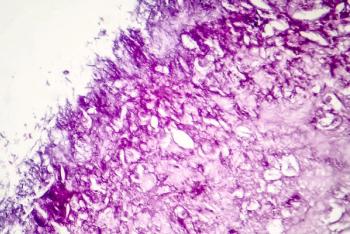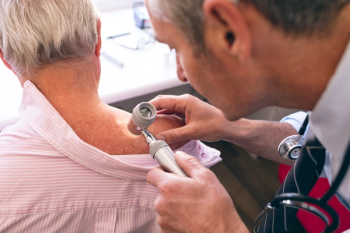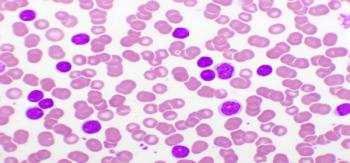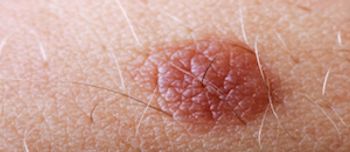
Patients may consult with their pharmacist regarding appropriate protection methods and treatment options available for common summer skin ailments.


Patients may consult with their pharmacist regarding appropriate protection methods and treatment options available for common summer skin ailments.

A recent study proved community pharmacies are model settings for skin cancer prevention education in rural communities with insufficient access to health care services.

The approval is based on results from the phase 2 KEYNOTE-629 trial, which found an objective response rate of 50% in adults with recurrent, metastatic, or locally advanced cutaneous squamous cell carcinoma.

Pharmacists’ vast health care knowledge and community accessibility makes them ideal patient liaisons.

The current study analyzed human tumor samples from 6 cancer types: liver, melanoma, colorectal, non-small lung, head and neck, and breast cancer.

Melanoma forms when pigment-producing cells called melanocytes mutate and multiply uncontrollably.

In England, incidence rates of the skin cancer cutaneous malignant melanoma were found to have increased by more than 550% among males and 250% among females since the early 1980s.

The FDA has granted toripalimab a fast track designation for use in the frontline treatment of patients with mucosal melanoma.

Pvsripo is a novel immunotherapy that activates patients’ innate and adaptive immune system to enable anti-tumor response and establish immunologic memory to prevent the recurrence of cancer.

Counseling patients on possible adverse effects that impact skin health can help patients prepare for serious or cosmetic impacts.

To analyze digital images of metastatic tumors of melanoma, the researchers used computer algorithms, or deep convolutional neural networks (DCCN), to identify patterns associated with treatment response.

The researchers isolated human primary keratinocytes from the skin of patients with non-melanoma skin cancers.

More than half of high-risk patients with resected, stage III BRAF V600-mutated melanoma who were treated with dabrafenib and trametinib were alive and relapse-free at 5 years.

This activity is supported by an educational grant from Merck Sharp & Dohme Corp..

Officials with the FDA have approved atezolizumab plus cobimetinib and vemurafenib for the treatment of patients with BRAF V600 mutation-positive advanced melanoma.

Pharmacy Times® spoke with Jennifer Craig, PharmD, CSP, about Skin Cancer Awareness Month and the importance of skin care.

"Approximately 40% of melanomas are considered to be ‘cold,’ meaning that they lack sufficient infiltration of immune cells within the tumor."

A randomized clinical trial offers strong evidence that a combination of 2 targeted melanoma drugs when given continuously keeps cancer from growing or spreading longer compared with intermittent treatment.

There are a variety of interventions that can be used to improve survival after a patient reports cancer toxicity following treatment.

Following a 7.5% increase in melanoma-related deaths among white Americans between 1986 and 2013, researchers have now found a nearly 18% decline over the following 3 years.

Individuals with the highest mercury levels in their blood were 79% more likely to report having had a non-melanoma skin cancer than those with the lowest levels.

With cases of melanoma increasing more rapidly than those of other malignancies (especially in men), no conference on oncology pharmacy would be complete without a session covering this topic and its expansion of treatment options.

With emerging research from The Sidney Kimmel Cancer Center-Jefferson Health, outcomes in patients with uveal melanoma that has metastasized were shown to significantly improve with changes in treatment.

Advances in research and immunotherapy have led to breakthroughs regarding biologics targeting melanoma.

An effective treatment plan for squamous cell carcinoma best undertaken by a group of practitioners.